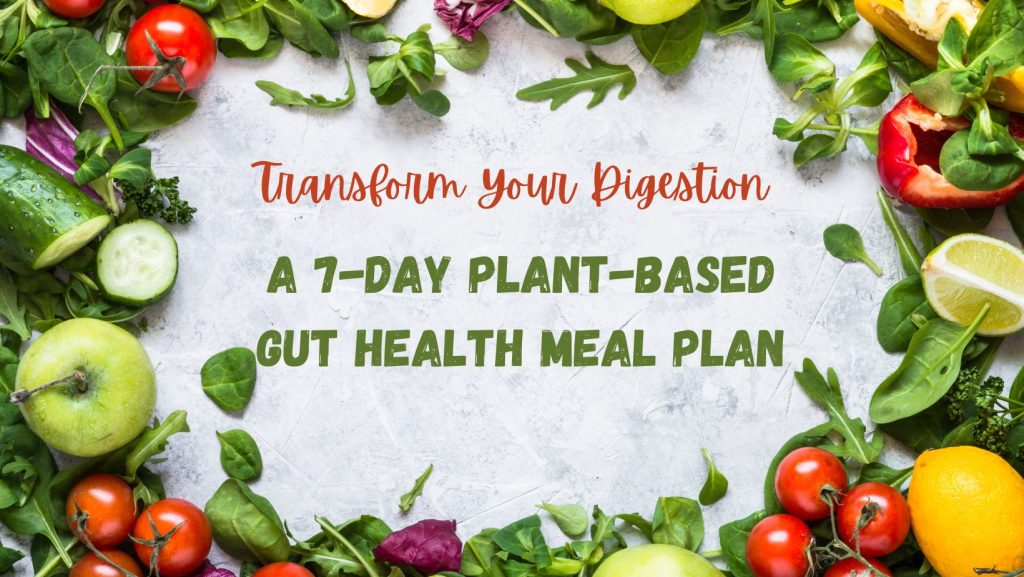
Do you suffer from bloating, discomfort, or sluggish digestion? If so, your gut health might be sending you some not-so-subtle signals. The good news? Embracing a plant-based gut health meal plan can be a delicious and transformative journey towards a happier gut and a healthier you.
This 7-day meal plan provides a structured yet flexible approach, packed with plant-powered goodness to nourish your gut microbiome and support optimal digestion. We’ll explore the science behind the ingredients, delve into delicious and easy-to-prepare recipes, and provide helpful tips for success.
Why Plant-Based for Gut Health?
Research suggests that plant-based diets rich in fiber, prebiotics, and diverse nutrients can significantly impact your gut microbiome. This “community of good bacteria” thrives on plant-based fuel, leading to potential benefits like:
- Improved digestion and regularity: Fiber acts as a natural laxative, keeping things moving smoothly.
- Reduced inflammation: Plant-based foods are often lower in inflammatory compounds and rich in antioxidants, promoting a calmer gut environment.
- Enhanced immune function: A healthy gut microbiome is crucial for a strong immune system, and plant-based diets offer essential nutrients for its support.
- Boosted mood: The gut-brain connection is real! Studies suggest a diverse gut microbiome can positively impact mood and mental well-being.

Ready to Embark on Your Plant-Based Gut Health Journey?
This 7-day plan offers a sample structure you can personalize based on your preferences and dietary needs. Remember, consistency is key, but don’t hesitate to swap ingredients or adjust portion sizes to fit your lifestyle. We’ll provide detailed recipes and substitution suggestions along the way!
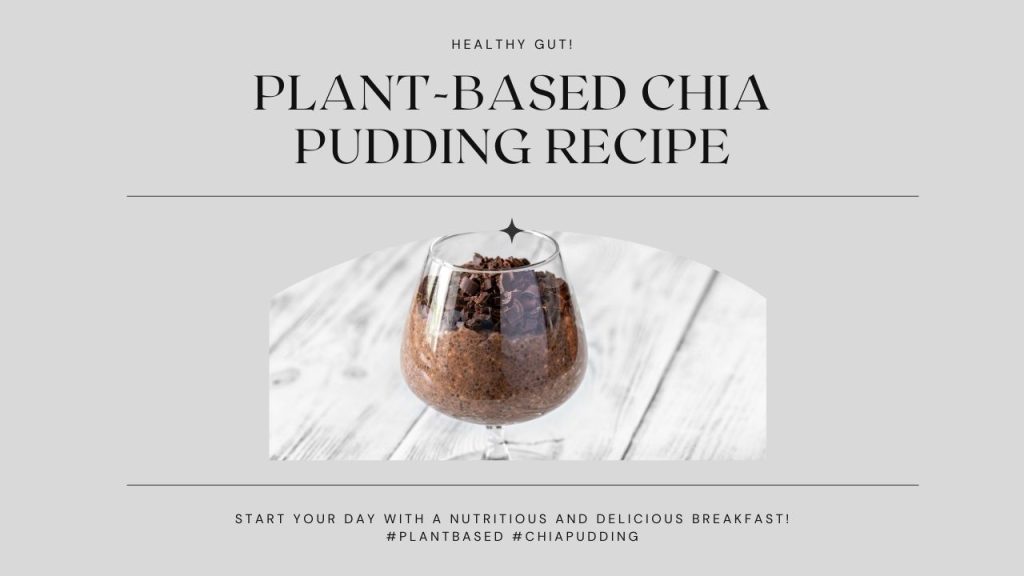
Day 1:
- Breakfast: Chia pudding with berries and flaxseeds (rich in prebiotics)
- Lunch: Lentil soup with whole-wheat bread (fiber + protein)
- Dinner: Stir-fried tofu with vegetables and brown rice (protein + fiber)
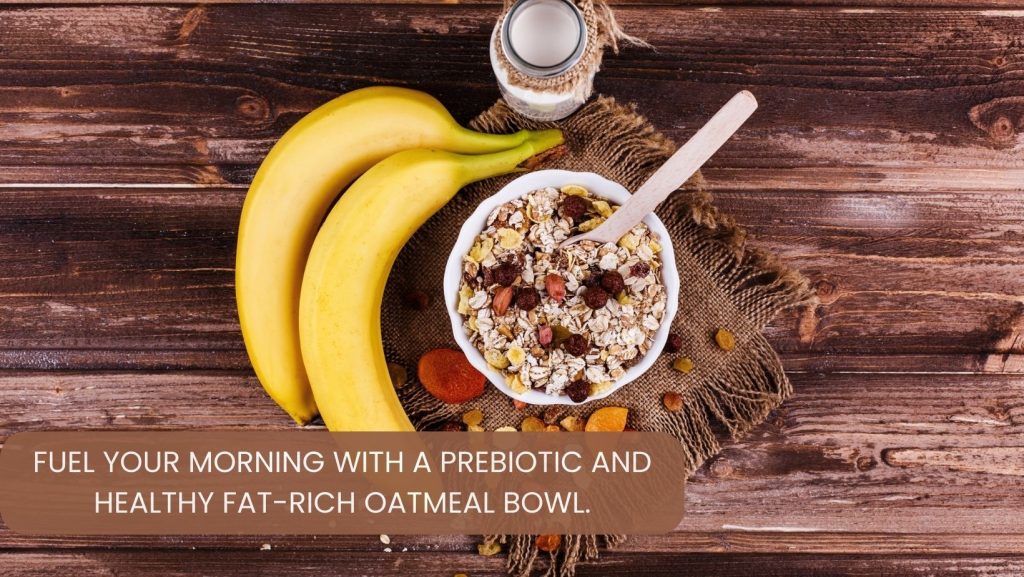
Day 2:
- Breakfast: Oatmeal with banana and chopped nuts (prebiotics + healthy fats)
- Lunch: Quinoa salad with chickpeas and roasted vegetables (protein + fiber)
- Dinner: Sweet potato black bean burgers with avocado (fiber + healthy fats)
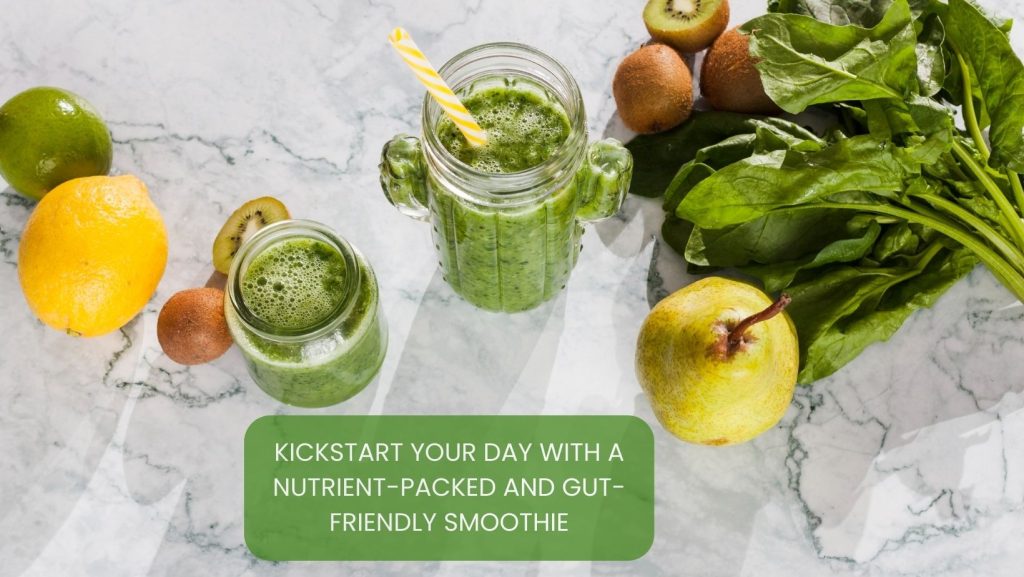
Day 3:
- Breakfast: Smoothie with spinach, banana, almond milk, and chia seeds (fiber + prebiotics)
- Lunch: Black bean and corn salad with avocado and whole-wheat tortilla (protein + fiber + healthy fats)
- Dinner: Vegan Buddha bowl with roasted vegetables, quinoa, and tahini dressing (fiber + protein + healthy fats)
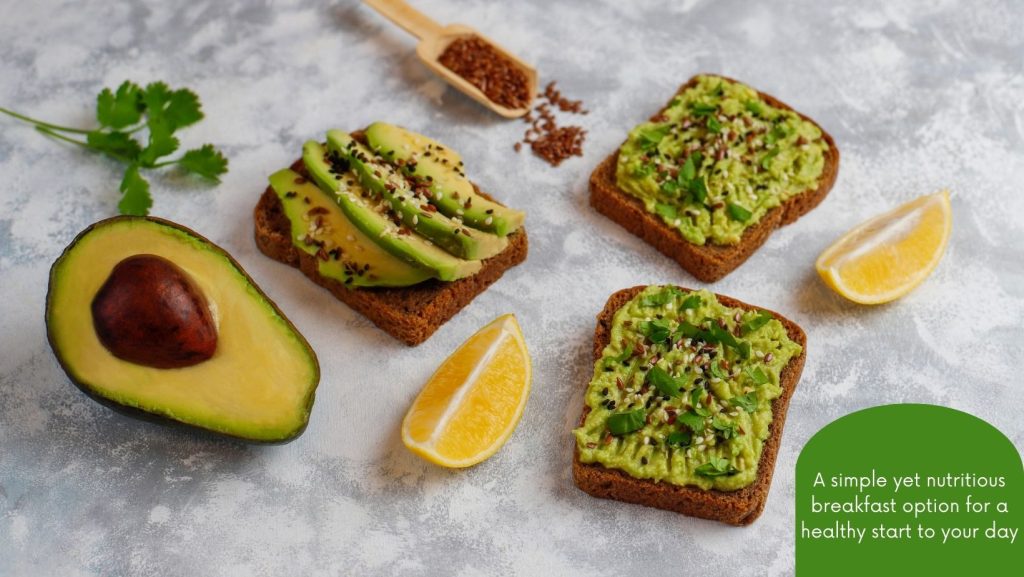
Day 4:
- Breakfast: Whole-wheat toast with mashed avocado and hemp seeds (fiber + healthy fats)
- Lunch: Vegetable curry with brown rice and lentils (fiber + protein)
- Dinner: Baked tofu with roasted Brussels sprouts and sweet potatoes (protein + fiber)
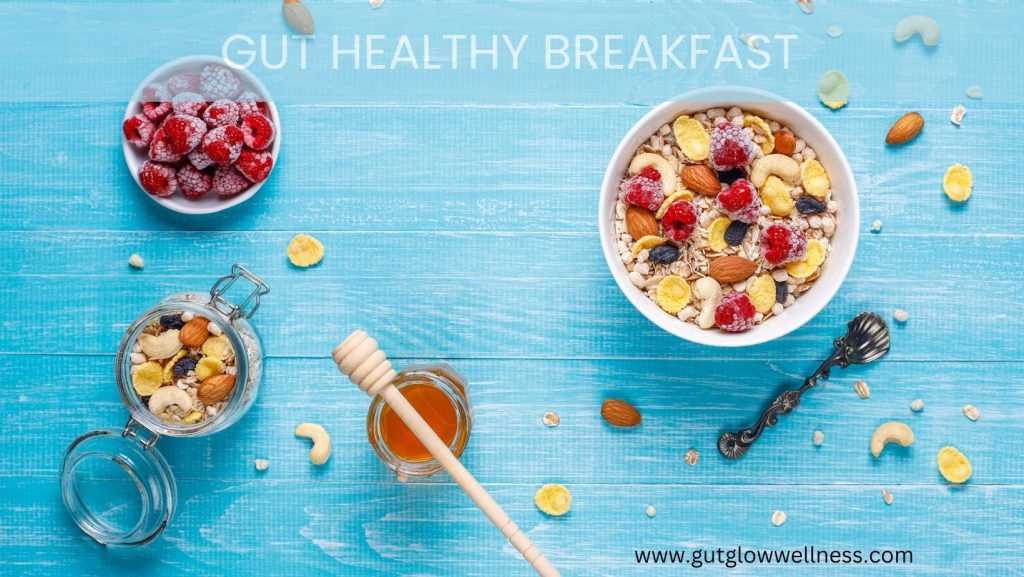
Day 5:
- Breakfast: Overnight oats with berries and almonds (prebiotics + protein)
- Lunch: Chickpea salad sandwich on whole-wheat bread (protein + fiber)
- Dinner: Veggie burgers with whole-wheat buns and sweet potato fries (fiber)
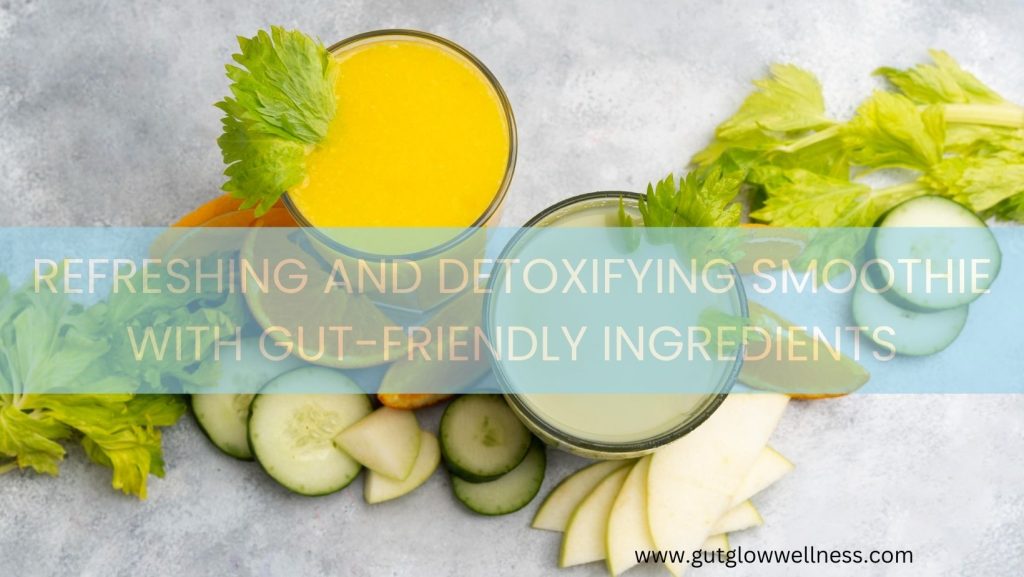
Day 6:
- Breakfast: Smoothie with kale, mango, coconut water, and ginger (fiber + antioxidants)
- Lunch: Lentil and vegetable soup with whole-wheat crackers (protein + fiber)
- Dinner: Tofu scramble with bell peppers, onions, and whole-wheat tortillas (protein + fiber)
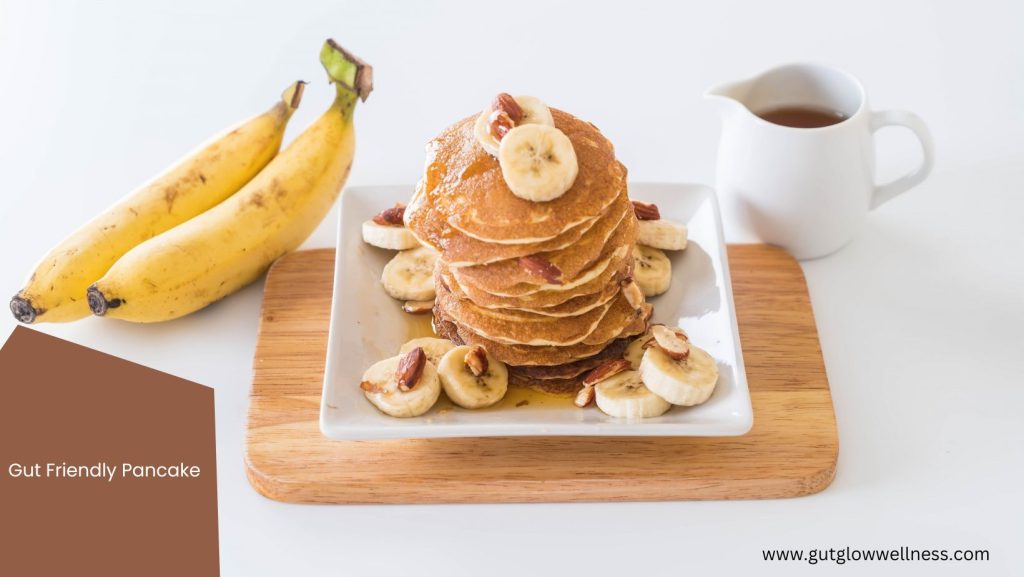
Day 7:
- Breakfast: Pancakes made with whole-wheat flour, banana, and chia seeds (fiber + prebiotics)
- Lunch: Leftovers from the week (fiber + protein + variety)
- Dinner: Veggie sushi rolls with brown rice and avocado (fiber + healthy fats)
Remember to include:
- A variety of fruits and vegetables in different colors for diverse nutrients.
- Whole grains for sustained energy and fiber.
- Legumes for protein and fiber.
- Healthy fats like avocado, nuts, and seeds.
- Herbs and spices for added flavor and potential health benefits.

Additional Tips:
- Consider incorporating fermented foods like kimchi, sauerkraut, or kombucha for added probiotics.
- Stay hydrated by drinking plenty of water throughout the day.
- Practice mindful eating to slow down and enjoy your meals.
- Listen to your body and adjust the plan as needed based on your preferences and individual needs.
I hope this helps you complete your 7-day plant-based gut health meal plan!
Frequently Asked Questions:
Why is my gut health so bad?

Your gut health may be influenced by various factors such as diet, stress, medications, and lifestyle choices. It’s important to maintain a balanced diet rich in fiber, probiotics, and prebiotics to support a healthy gut. Additionally, managing stress levels, staying hydrated, and getting regular exercise can also contribute to better gut health. Consulting with a healthcare professional can provide personalized guidance and recommendations for improving your specific gut health concerns.
Does gut health affect skin?

Yes, gut health can have an impact on the skin. The gut and skin are closely connected through various mechanisms, including the gut-skin axis. Imbalances in the gut microbiome can contribute to inflammation, which can manifest on the skin in the form of acne, eczema, or other skin conditions. Taking care of your gut health by maintaining a balanced diet, staying hydrated, and managing stress can help promote healthy skin.
Does gut health affect weight?

Yes, gut health can have an impact on weight. The health of our gut microbiome, which consists of trillions of bacteria in our digestive system, plays a crucial role in various aspects of our health, including metabolism and weight management. An imbalance in the gut microbiome, known as dysbiosis, can lead to issues such as inflammation, insulin resistance, and weight gain. Therefore, maintaining a healthy gut through a balanced diet, regular exercise, and probiotic-rich foods can support weight management efforts.
Does gut health affect acne?

Yes, there is a connection between gut health and acne. Studies have shown that imbalances in the gut microbiome can lead to inflammation and hormonal imbalances, which can contribute to the development of acne. Eating a healthy diet, avoiding processed foods and sugar, and taking probiotics can help improve gut health and potentially reduce acne.
Can gut health cause bad breath?

Yes, gut health can cause bad breath. Digestive issues such as acid reflux, SIBO (small intestine bacterial overgrowth), and constipation can lead to bad breath because they produce an environment where odor-causing bacteria thrive. Additionally, poor gut health can cause inflammation, which can lead to an imbalance in the oral microbiome and result in bad breath. It is important to maintain good gut health through a balanced diet and regular exercise to avoid bad breath caused by digestive issues.
Leave a Reply